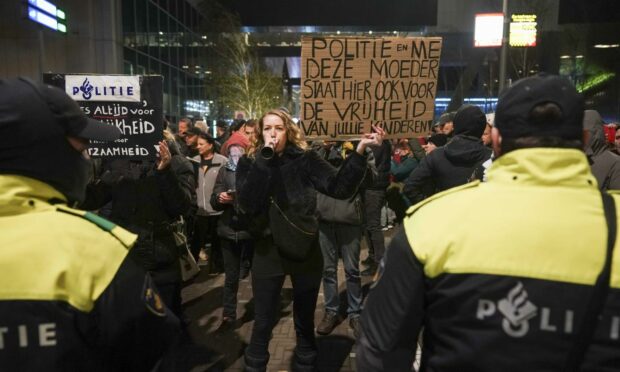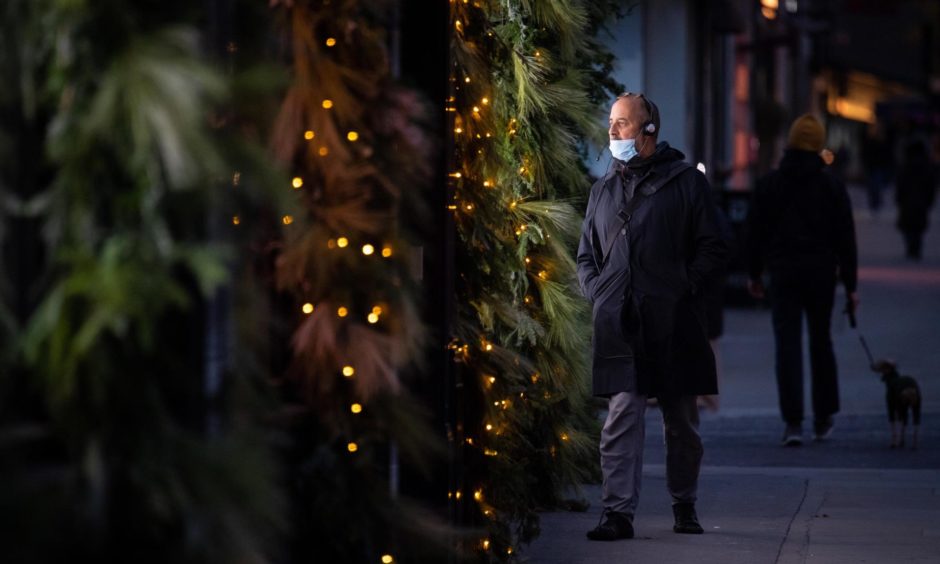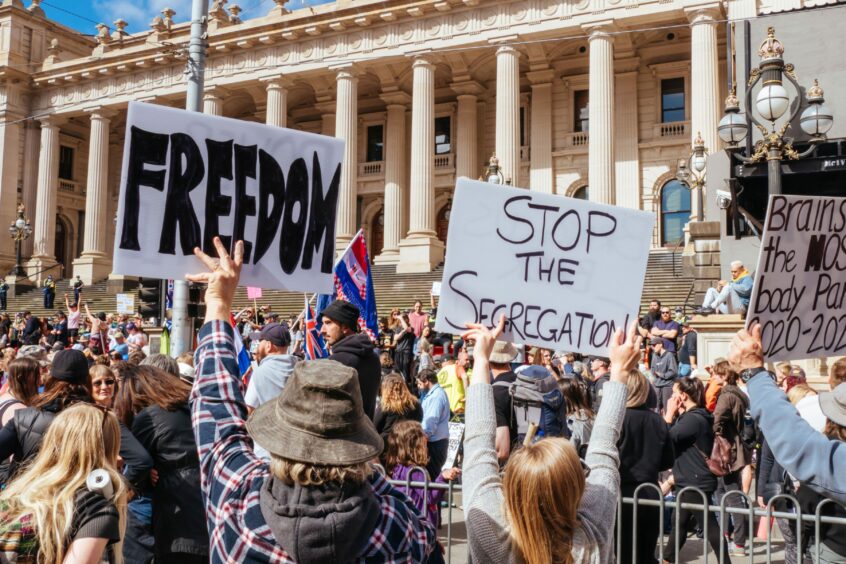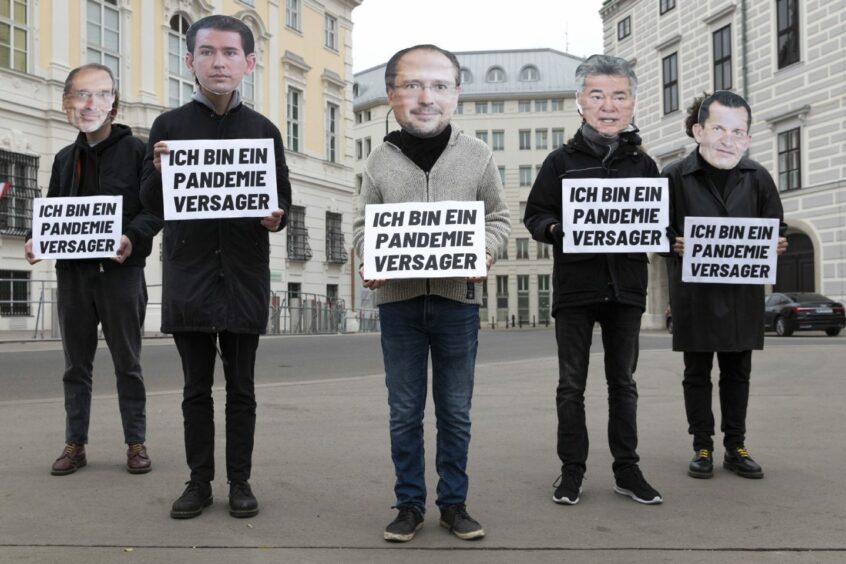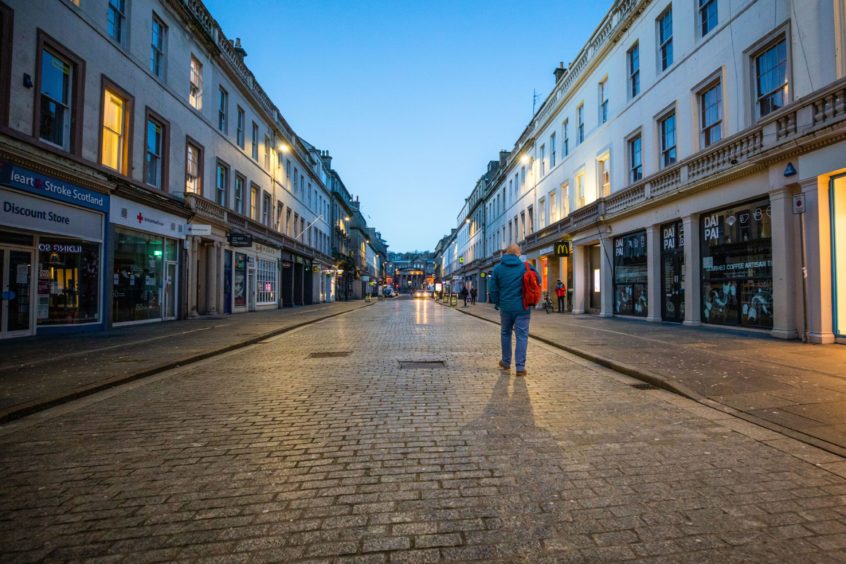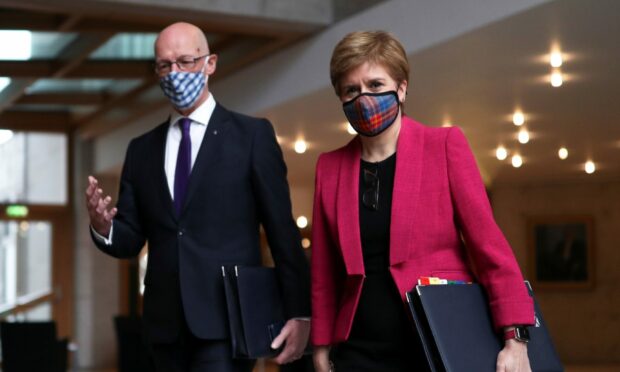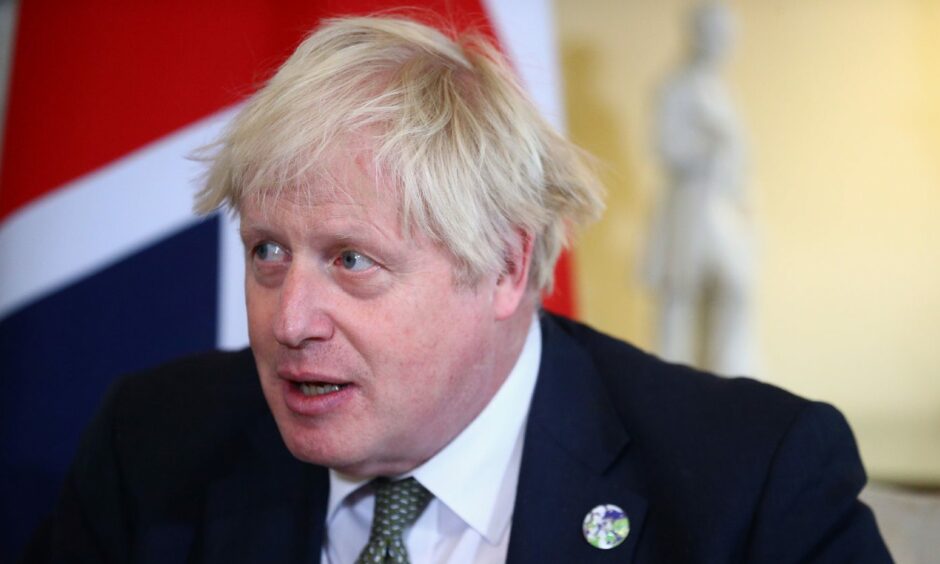Nicola Sturgeon is considering what changes will be made to Covid-19 rules in Scotland – but with European leaders appealing for calm after riots against harsh new restrictions from the Netherlands to Austria, could we end up following suit?
Here, health experts are worried – including calls from NHS Grampian to tighten restrictions.
The Scottish Government is focused on how to use vaccine passports or tests to curb the spread, protect businesses and help doctors and nurses cope over winter.
So far, politicians are fending off calls which might ruin Christmas plans like last year.
And it all seems far away from decisions such as Austria’s order for compulsory vaccinations.
As the first minister weighs up decisions which will affect us all, what can we expect in the coming weeks?
What is happening in other countries?
From the compulsory vaccine order to partial lockdowns, new measures are being met with fury.
Authorities across Europe have pleaded for patience, calm and a willingness to get vaccinated in the face of huge riots against anti-Covid measures.
Tens of thousands of people have taken to the streets in cities across the continent, including Brussels, to protest against lockdown restrictions introduced in the wake of a spike of infections.
In Belgium, the rules on face masks have been tightened, including in restaurants – where Covid passes are already required. Most Belgians will have to work from home four days a week until mid-December.
There are also plans to make vaccinations for health workers compulsory.
Blazing bicycles
Youths threw fireworks at police officers in the Netherlands and set fire to bicycles in The Hague after the government announced a three-week partial lockdown and a ban on fireworks on New Year’s Eve.
Under the rules, bars and restaurants must close at 8pm and crowds are banned at sports events.
Huge numbers of people also turned out to protest in Austria‘s capital, Vienna, after the government announced a new national lockdown and plans to make vaccines compulsory by February.
It will enter a 20-day nationwide lockdown from Monday, shutting all but essential shops and ordering people to work from home.
Austria will become the first European country to make jabs a legal requirement for the general population.
Meanwhile, there is been growing anger in Croatia over mandatory vaccinations for public sector workers and in Italy over passes to enter some workplaces, venues and to use public transport.
Is Scotland heading to another lockdown?
Experts have pointed to the importance of vaccine uptake in avoiding the toughest lockdown restrictions.
Scotland is the most vaccinated nation in the UK – and the UK has a higher uptake of the vaccine than some of its European neighbours.
When new measures were imposed in Austria, much was made of the low rate of vaccination among its adult population: 65.4% compared to Scotland’s 72.2%.
However, restrictions are now being seen in countries with much a better uptake.
Belgium has fully vaccinated 74.9% of its adult population and the Netherlands has fully vaccinated 72.3%.
Nicola Sturgeon has repeatedly said there are no plans to introduce a new lockdown in Scotland but what happens next will largely depend on the strain on the NHS.
NHS Grampian public health consultant Derek Cox recommended “more severe” Covid restrictions for Grampian in the run-up to Christmas amid a rapid rise in cases.
Compounding the crisis, the region’s hospital occupancy is almost at full capacity.
He warned that if coronavirus admissions rise any further, they could be entering an “untenable” situation at Aberdeen Royal Infirmary.
What’s been ruled in or out at Holyrood?
Nicola Sturgeon told MSPs at last week’s Covid update that the government is considering changes to keep the virus under control during the winter months.
It is understood ministers are discussing whether to change the rules around showing proof of vaccination to enter some venues.
Vaccine passports are currently required for nightclubs and large events but this could be expanded to include cinemas, theatres, and some licensed and hospitality premises such as pubs and cafes.
The Scottish Government is also considering whether to introduce a requirement for people to show proof of a negative Covid test, either on top of the vaccine passport or instead of it in some situations.
However, critics have insisted there is no proof the passport scheme helps to stop the spread of Covid-19 or increase uptake of the vaccine.
Storm clouds are gathering over the continent.”
– Boris Johnson
A Scottish Government report published on November 19 found the scheme has hit businesses hard and led to only a small increase in the number of people taking up the jab.
It said Scotland now has a choice between closing venues and limiting contact – similar to lockdown – or using certification to “reduce the risk that an infectious person will be present in a higher risk setting”.
Ms Sturgeon will update MSPs on Tuesday but any decision to extend the vaccine passport scheme would not be implemented until December 6.
What has Boris Johnson said?
Speaking last week at a Downing Street press conference, Boris Johnson raised the prospect of Britons soon needing a booster jab to be considered “fully vaccinated” when going abroad or for self-isolation rules.
The prime minister warned “storm clouds are gathering over the continent” but he insisted strong vaccination rates are the best defence against having to introduce new measures.
Mr Johnson said that “countries with lower vaccination rates have tended to see bigger surges in infection, and in turn been forced to respond with harsher measures”.
He added: “We don’t yet know the extent to which this new wave will wash up on our shores, but history shows we cannot afford to be complacent.”
Mr Johnson warned that ministers “cannot rule anything out” when asked about the prospect of a Christmas lockdown.
What are the rates of Covid right now?
On the eve of the November 23 update, Scotland had recorded 2,481 new coronavirus cases but no deaths in the past 24 hours.
It means the death toll under this daily measure – of people who first tested positive for the virus within the previous 28 days – remains at 9,478.
The daily test positivity rate was 11.4%, up from 9.7% the previous day, according to data published by the Scottish Government on Monday.
There were 750 people in hospital on November 21 with recently confirmed Covid-19, down 27 on the previous day, with 59 in intensive care, up one.
